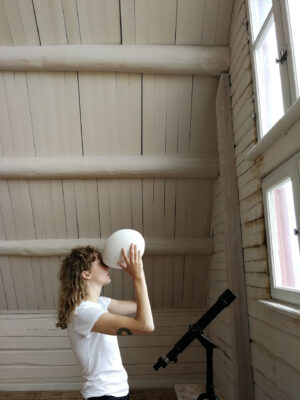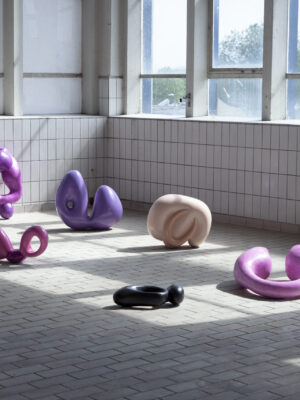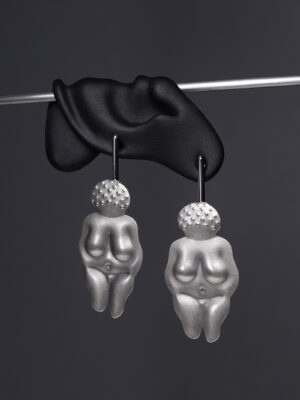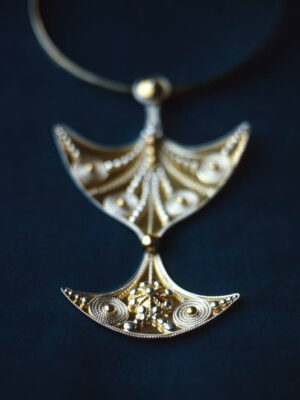

Taikon came to use her artistry as a platform for education as well as for the fight for human rights. In 1967, Taikon gets her artistic degree, and two years later she exhibits at Sweden´s National Museum. The exhibiton shows her artwork but does also play a significant part in the ongoing debate about Roma rights in Sweden. Rosa and her sister Katarina Taikon began the struggle for human rights together in the 1960s, and Rosa continued after Katarinas passing in 1995.


Born in a tent in 1928, Rosa Taikon was the daughter of Johan Istvan Taikon, the last silversmith of the kelderasha tradition in Sweden. In this tradition, silversmithing was considered a male craft. But after the passing of both Johan and her brother Paul, Rosa realized that she was the one to hand down and develop the silversmithing traditions.


Through her artistic education at Konstfack (University of Arts, Crafts and Design), she formed a unique modernistic design rooted in, and developing, roma traditions. In 1973, Rosa Taikon moves from Stockholm to Flor in the north of Hälsingland. Together with her husband Bernd Janusch, also a silversmith, she designs their home and workshop in an old school. Their home comes to be a well-attended destination. In 1987, the couple divorced, but Rosa Taikon continues her artistic career with exhibitons all over Sweden and around the world.


After Rosa Taikon’s passing in 2017, her studio was donated to the Museum of Hälsingland. The donation includes Taikon’s artistic as well as political legacy. During 2018, the material from the studio was inventoried, archived and digitized. Today it forms The collection of Rosa Taikon at the Museum of Hälsingland. The collection includes approximately 2000 objects, including a large number of publications, articles, sketches and photographs. The material has been studied by Christina Zetterlund, associate professor of art and craft history at Linnaeus University and former professor at Konstfack. Based on Zetterlund’s research, a new permanent exhibition, telling about Rosa Taikon’s artistic and political works, will be designed at The Museum of Hälsingland. The exhibition intends to open in the spring of 2021.
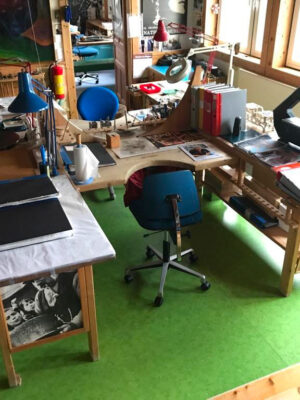
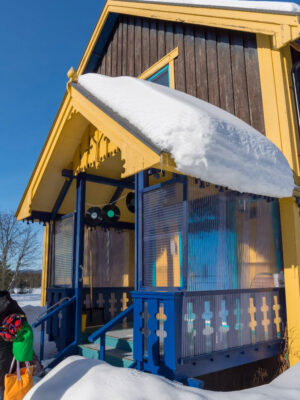
This article was produced in connection with Stockholm Craft Week 1-4 October 2020

